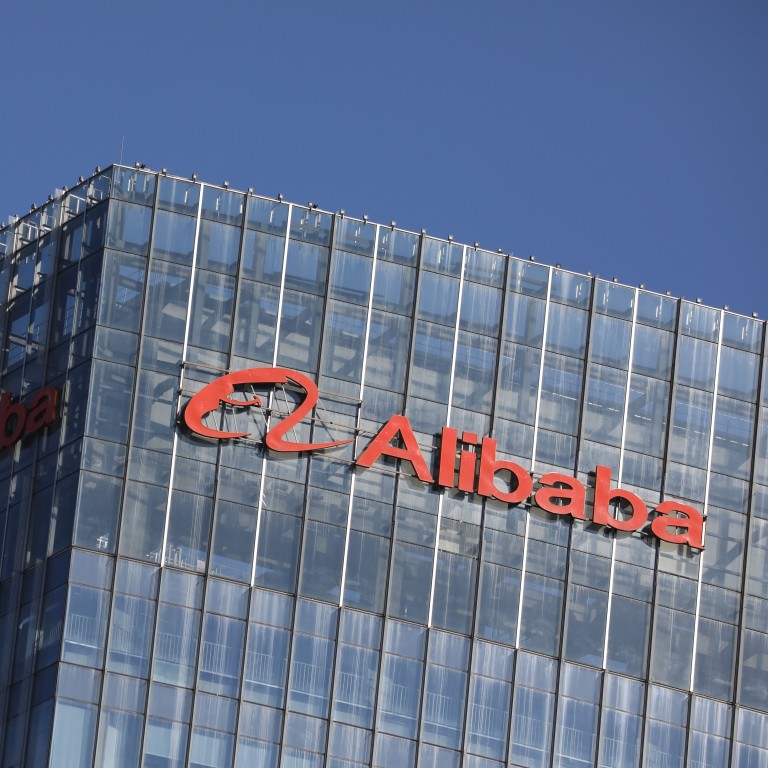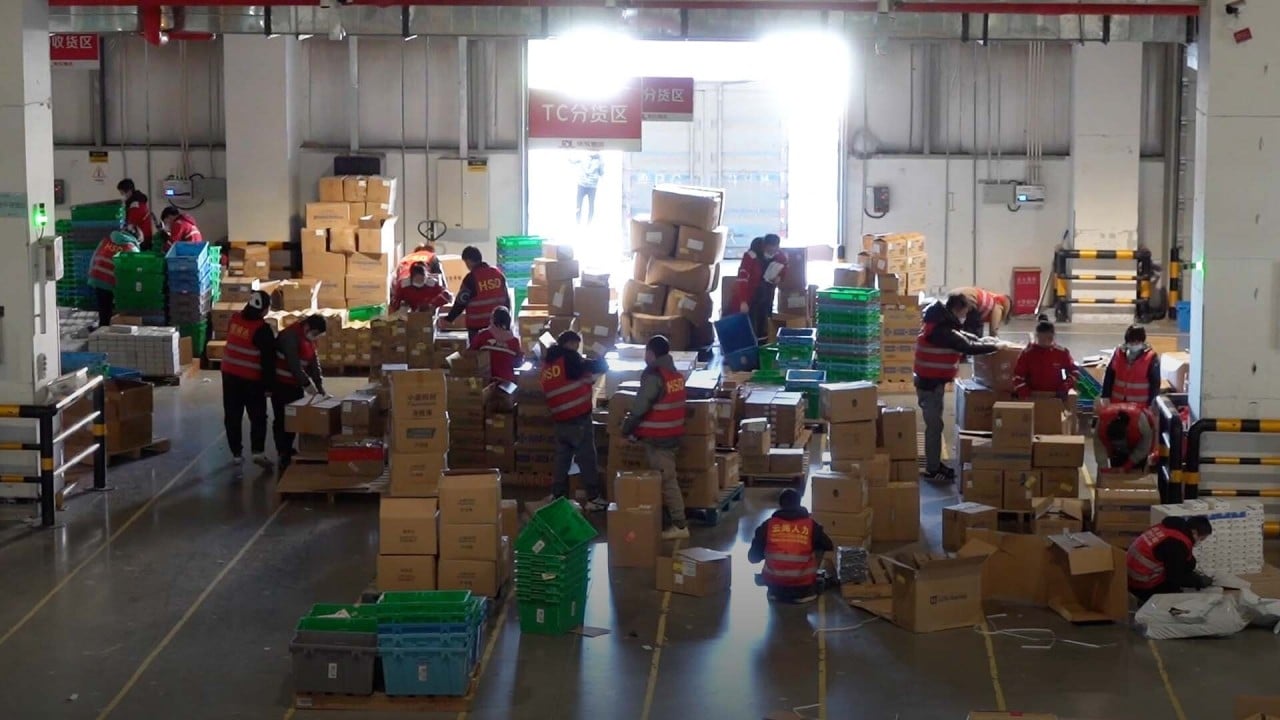
Alibaba net income plummets 87 per cent, with first adjusted profit decline in more than five years
- Alibaba net income fell 87 per cent for the September quarter, worse than estimated, as it ploughed money into Taobao Deals and Lazada
- The company’s cloud business grew 33 per cent
Net income fell to 3.4 billion yuan (US$524 million), compared with 26.5 billion yuan a year earlier. The drop was worse than what was expected by analysts, who estimated the company would see 24 billion yuan in net income. Alibaba attributed the decline to heavy investment in its new bargain marketplace Taobao Deals, local consumer services, Taocaicai, used for local community group buying, and Lazada, the Singapore-based e-commerce platform Alibaba acquired in 2016. It also includes losses from investments in publicly-traded companies.
Adjusted profit for the Hangzhou-based technology firm, which owns the South China Morning Post, was down to 28.52 billion for the quarter, a 39 per cent decline, marking the first fall in adjusted profit for the company in 22 quarters. Revenue reached 200.7 billion yuan for the quarter, a 29 per cent increase year on year but below the expected 207.4 billion yuan, according to estimates by 35 analysts compiled by Bloomberg.
Singles’ Day posts a record haul even at the slowest pace in a decade
Alibaba said gross merchandise value year-on-year growth also fell to single digits because of a market slowdown and more e-commerce players. “I think our performance to some extent will reflect the overall market conditions,” Alibaba CEO Daniel Zhang Yong said.
Zhang suggested the company would continue to prioritise the growth of its new businesses.
“Our priority for Taobao Deals and Taocaicai is to still to build the right infrastructure, in terms of the manufacturers-to-consumers model in Taobao Deals, as well as a hyperlocal community marketplace infrastructure,” he said. “So I think these are our priorities.”
Alibaba projected 20 to 23 per cent growth for next fiscal year. The company’s share price dropped 5.3 per cent on Thursday, closing at HK$156 (US$20) in Hong Kong before the latest quarterly results were announced.

02:26
Singles’ Day 2021 in China shifts focus from consumerism to social responsibility
Alibaba has long used Singles’ Day to showcase its sales and marketing prowess. For years, the company invited global stars like Taylor Swift and Mariah Carey to appear live on stage to sustain the excitement during the 24 hours of deals on various online shopping sites.
The government has also tightened rules on the collection and use of consumer data, and it has pushed for more interoperability among competing platforms. Zhang said the company has so far seen no material impact from the Personal Information Protection Law, which went into effect this month.
Alibaba points to environment, ‘hard tech’ as Singles’ Day sales slow
However, he acknowledged that sharing Taobao links on other platforms is not a smooth experience.
“Today if you are Taobao user, you may have experienced that when you want to share some product links with your friends on social platforms, the experience actually is bad,” Zhang said. “So I think this is for our mutual customers’ benefit to improve the experience when they try to do whatever they want across ecosystems, and we have already made necessary preparations for future interconnectivity.“
One bright spot for Alibaba is its cloud computing division, the country’s largest cloud service provider that competes with Amazon and Microsoft, which grew 33 per cent year-on-year to 20 billion yuan. Alibaba said this year was the first time the Singles’ Day event was entirely run on the cloud.
Alibaba was fined US$2.8 billion in April for abusing its dominant market position, and subsequently has had to stop demanding exclusivity from its vendors. Chinese regulators have also been pressing big tech companies to open up their “walled gardens”, the term used for their closed ecosystems in which all operations are controlled by the tech giant.

